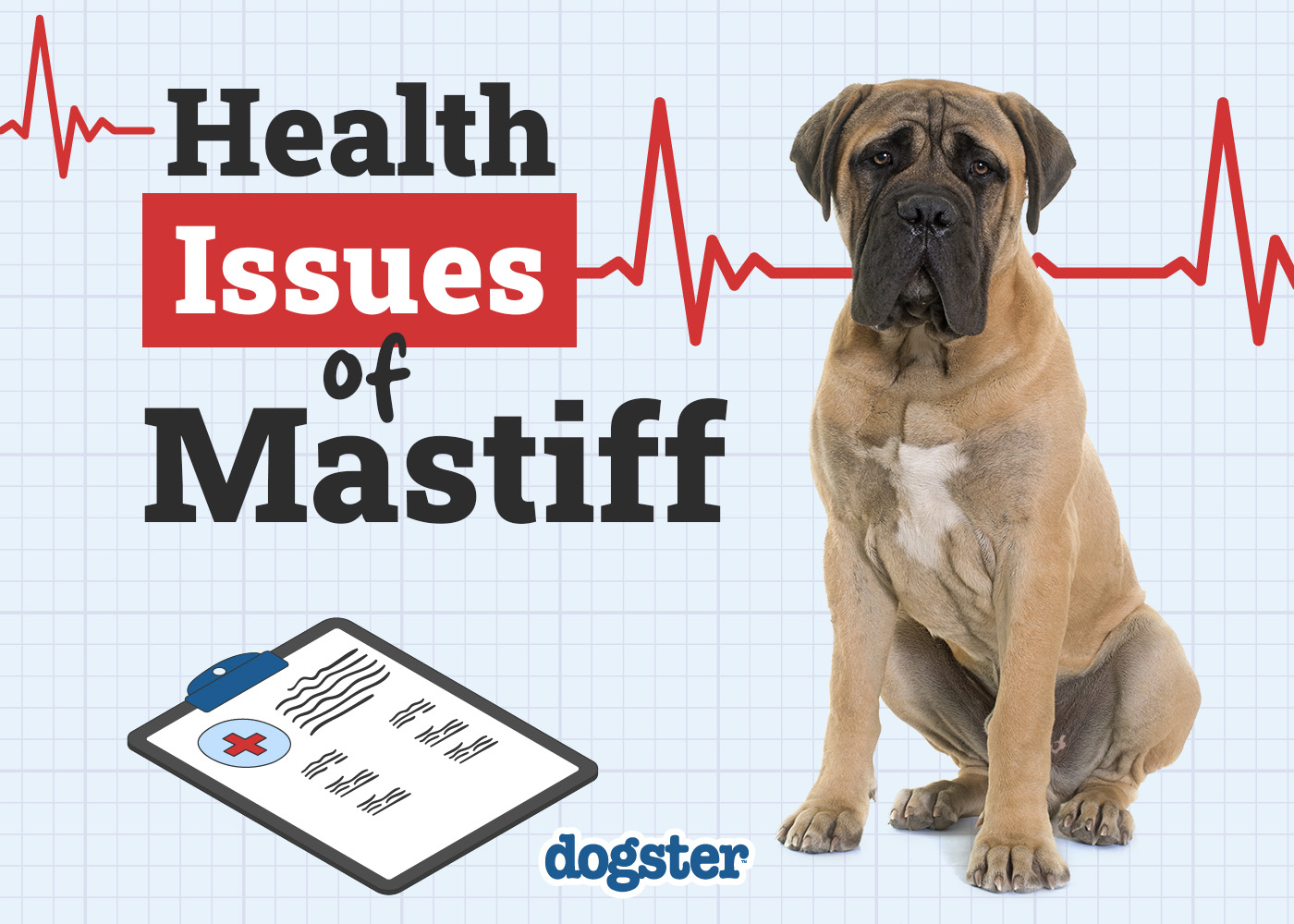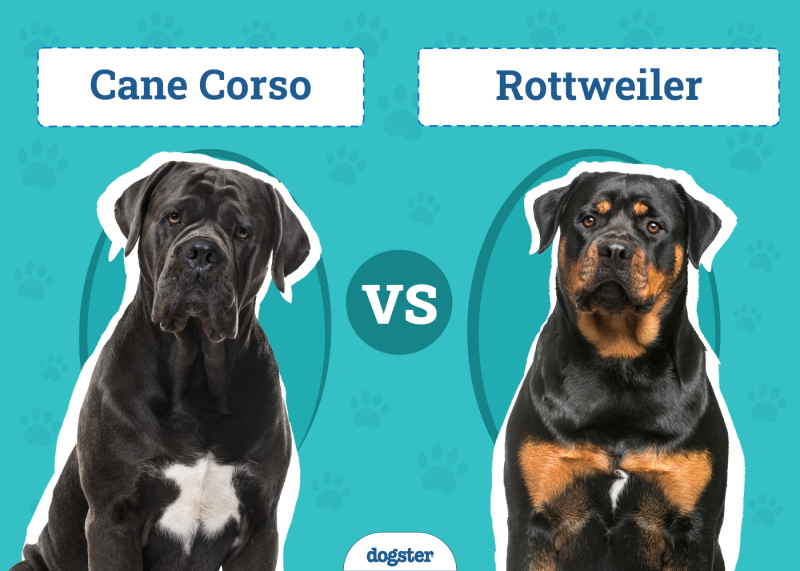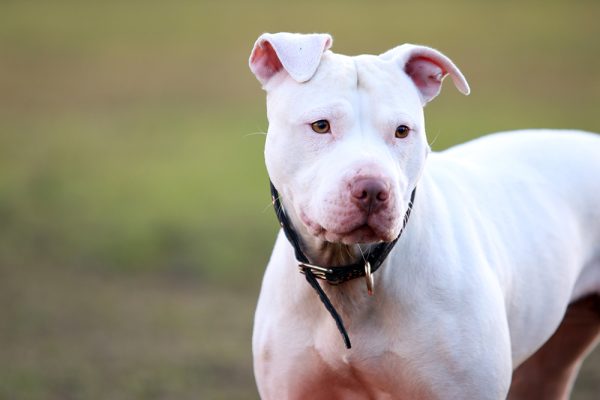Mastiffs are gentle giants who make excellent protectors and even better companions. But before you decide to buy or adopt one, you may wonder more about what it’s like to own a Mastiff—including potential medical problems.
Mastiffs are healthy, especially if you buy from a reputable breeder or obtain a full vet history. However, they are not immune to some problems. Here are some issues you should be familiar with, just in case.

The 9 Common Health Issues in Mastiffs
1. Hip and Elbow Dysplasia
Hip and elbow dysplasia are common skeletal disorders that can be very painful for our pets. The hips and joints form with a ball and sockets, usually cushioned by cartilage.
With this condition, the ball and socket do not fit properly and rub and grind against one another instead of gliding smoothly. Over time, it causes deterioration and loss of function in the elbows and hips. Luckily, testing can be done before symptoms develop to see if your dog is predisposed.
Signs of hip and elbow dysplasia include:
- Weakness in legs
- Pain in joints
- Limping
- Reluctance to walk inclines
- Wobbling
- Decreased range of motion
You can manage your dog’s hip dysplasia depending on the stage and severity.
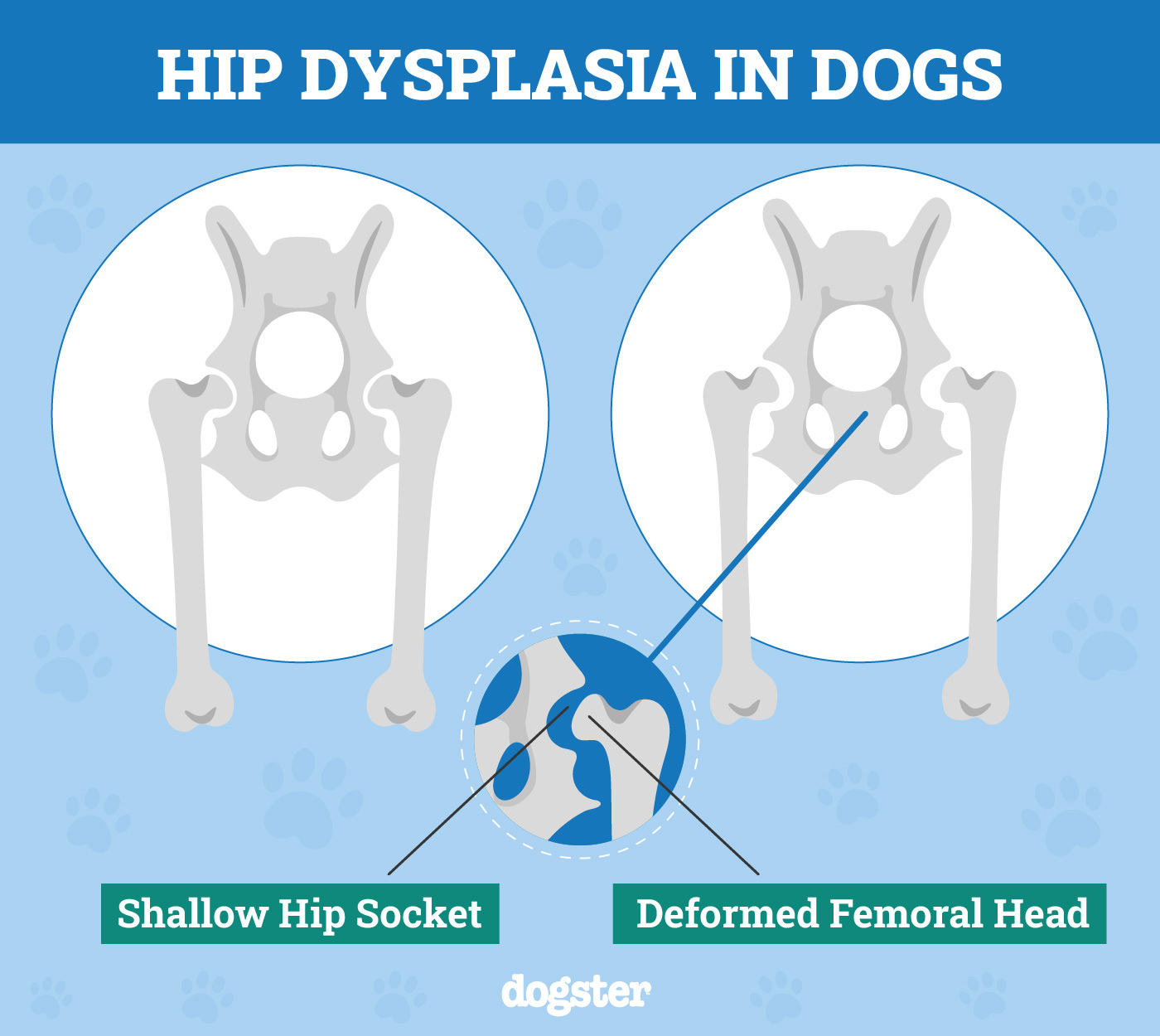
2. Allergies
Your Mastiff might be susceptible to food and environmental allergies. This will vary from pup to pup, causing reactions in the immune system and skin. It might take a while to pinpoint allergies, as all symptoms are not always apparent at first.
However, over a series of time, you might notice the following signs:
- Dry skin
- Excessive itching
- Frequent infections
- Coughing
- Sneezing
It might take some time to determine your Mastiff’s underlying allergy. Some testing can be completed to see if it stems from food, products, or the environment. Then, your vet might have you perform trials to see if symptoms improve without certain triggers present.
3. Dilated Cardiomyopathy
Dilated cardiomyopathy is a degeneration of the heart muscle. Because of this degeneration, the heart becomes thinner, especially in the left ventricle. Because your heart constantly pumps blood, these thin walls stretch, resulting in a larger heart.
Once it reaches this size, it’s considered dilated cardiomyopathy. This can cause onset heart failure in large breeds.
Signs of dilated cardiomyopathy include:
- Rapid breathing when resting or sleeping
- Increased difficulty in breathing
- Restless sleeping
- Coughing or gagging
- Weakness
- Collapsing or fainting
- Decreased appetite
- Distended belly
- Change in demeanor
- Sudden death
If you notice any of these signs, it is highly crucial to get your dog to the vet for further testing.
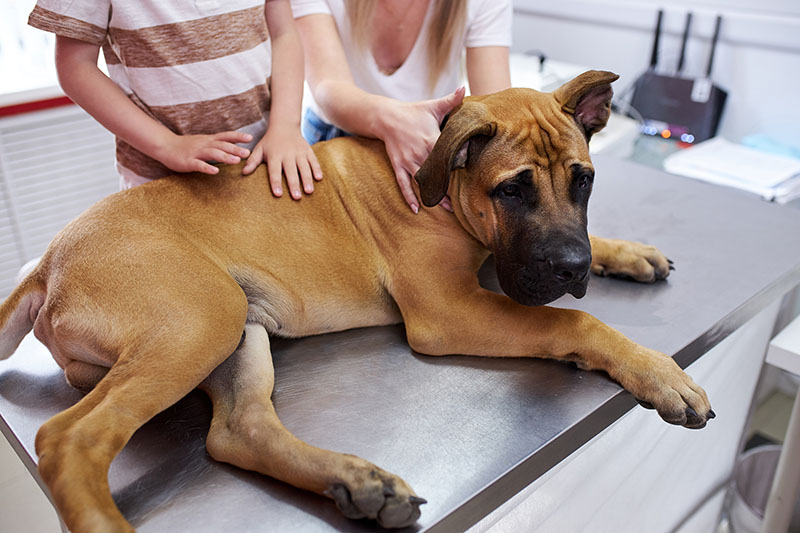
4. Cherry Eye
Cherry eye occurs when the third eyelid everts. Dogs with cherry eye have a swollen, red lump on the lower eyelid. This issue can be resolved with surgery. In most dogs, the gland returns to normal after surgery.
5. Ear Infections
Mastiffs, among other breeds, can get frequent ear infections. These infections are painful and easy to detect, as they cause your dog to shake their head or scratch their ears relentlessly.
You can also see visual signs such as inflammation, offensive odor, and black-to-yellow discharge. Ear infections can stem from several factors, such as getting water or moisture in the ears.
Ear infections are not to be confused with ear mites. Ear mites are small bugs that infest the ear canal, causing intense itching and discharge.

6. Obesity
If you have a Mastiff, you know how much they love to eat. So if their diets are not as restricted, they might pack on the extra pounds, leading to obesity.
Luckily, obesity is easily controlled. Unchecked, it can lead to other issues like diabetes.
7. Bloat
Bloat is an unfortunate yet common health condition in many large breeds. This happens when gas, fluid, and food fill the abdomen, causing the stomach to twist.
This issue can come on very quickly and is often caused by eating too fast, overeating, drinking too much water too quickly, and a series of other potential connections. This problem can affect many large breeds but can affect breeds in different-sized categories as well.
Signs of bloat include:
- Restlessness
- Distended abdomen
- Painful belly
- Distress
- Retching without vomiting
- Drooling
- Panting
Unfortunately, this condition is always fatal without treatment. So, it’s important to seek treatment from your dog’s vet immediately.

8. Hypothyroidism
In your dog’s neck, there is a gland called the thyroid. It controls the production and circulation of hormones throughout the body. When the thyroid produces too little hormone, it can cause a condition known as hypothyroidism.
Hypothyroidism can be tricky to diagnose, so it’s important to know what to look for. Your vet will have to perform a series of blood tests to determine thyroid levels and potential problems therein.
Signs of hypothyroidism include:
- Weight gain without increased caloric intake
- Lethargy
- Lack of playfulness
- Dry, dull coat
- Thinning hair
If your dog has hypothyroidism, your vet will put them on a specific dosage of thyroid replacement hormones. Your vet will routinely take blood samples to ensure the thyroid levels are normal and adjust medication as needed.
9. Seizures & Epilepsy
Mastiffs can sometimes suffer from seizures due to another underlying health condition. Types of attacks can be very different and have various causes.
Sometimes, seizure disorders can happen from toxins, liver disease, high or low blood sugar, kidney disease, anemia, head injury, encephalitis, brain cancer, strokes, and electrolyte problems. As you can see, there’s really no one-size-fits-all, and any part of the body can cause the effect.
Epilepsy is a specific type of seizure disorder that accounts for approximately 5% of all seizure cases in dogs.
Signs of seizures include:
- Jerking
- Dazed look
- Disorientation
- Drooling
- Muscle twitching
- Loss of consciousness
- Paddling leg motions
- Wobbling
Some dogs will have to take seizure medication to reduce the effects. Sometimes, seizures are also manageable by treating the underlying condition.
Remember to have regular vet visits when owning a Mastiffs to keep their health and well-being. If you’re concerned about your dog’s health we suggest you speak to a vet.
If you need to speak with a vet but can't get to one, head over to PangoVet. It's our online service where you can talk to a vet online and get the advice you need for your dog — all at an affordable price!

Importance of Routine Vet Care
As soon as you bring your puppy home, it’s important to start with that care immediately. In the first year, your vet and your pup are going to get to know each other very well. Once routine vaccinations, deworming, spay and neuter surgery, and microchipping happen, your vet will see your furry friend once to twice a year.
During examinations, your vet can look for any signs that problems might have developed since the last time they were in. Getting ahead of potential issues can brace you for future possibilities.
Buying From a Reputable Breeder
Most genetic health conditions for Mastiffs can be avoided very easily. If you buy from a licensed breeder, both parents should be completely tested for any genetic diseases or disorders they can pass through the bloodline.
Dogs with genetic diseases should never be used in breeding programs. All puppies should also have primary vet care and general testing done.


Conclusion
So, now you have a brief idea of what diseases and illnesses you can expect—and how you can potentially avoid getting a Mastiff who has one. Remember, if you consider adopting a Mastiff with a current health condition, only you can decide if it’s something you want to take on. Some health conditions can be avoided by proper breeding, timely vetting, and fast treatment.
See also:
- English Mastiff vs Neapolitan Mastiff: Visual Differences & Overview (With Pictures)
- How Aggressive Are Mastiffs? Breed Facts & Prevention Tips
Featured Image Credit: Waldemar-Dabrowski, Shutterstock
